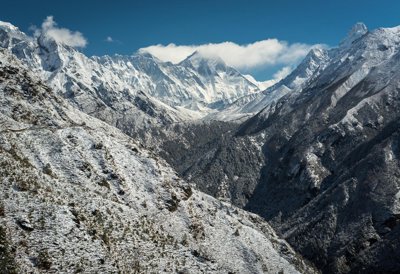How did you get to where you are now?
I joined what is now WSP in 1993 as a ‘land referencer’ working on the Channel Tunnel Rail Link (now High Speed 1), having studied Geography at Kent University and then Estate Management at Heriot-Watt University. Working as an Investment Surveyor I realized that a career in commercial property wasn’t for me and I wanted something that took me back to a more geographical sphere. Infrastructure development planning called upon my property degree but is really about geography and spatial data management.
Land referencing is about identifying land and property and the associated legal interest held that they may be correctly consulted and informed of any infrastructure planning process that affect them. This work is pursued within the tight frameworks of statutory planning processes which is highly detailed, and may ultimately involve compulsory purchase of property and is therefore a delicate and emotive progress. WSP is the leader in this field.
Was there anything particularly useful that helped you get into this role?
I have found the willingness to be flexible and being prepared to take on things thrown at me particularly useful. As a result I have had several roles, where I have stepped in to deliver what was necessary and has included project and technical management, business development and managing financial performance. To be effective in any role I have found it really useful to have a strong appreciation of what makes the other parts of the wider operation tick.
What do you do as part of your role?
I wear a number of leadership hats at WSP. I am a Director of Planning, the part of WSP that Land Services sits in, and have responsibility for Technical Expertise. As such I chair our Technical Leadership Group that drives innovation, develops training, instils best practice, champions professional excellence and oversees technical governance across a team of about 800.
I am also the Head of Profession in Land Services, the 340-strong team I have always been part of, which remains my technical home. In this role I provide strategic advice to clients and colleagues working on all sorts of projects including HS2, Heathrow Expansion, Tideway Super Sewer, Crossrail and lots more, to help solve project challenges.
I help shape the strategic direction of the business regarding the markets, sectors and clients we want to work with, and have a responsibility for ensuring we remain technically excellent. I also lead a team in India and am our Information Security Director. No two days are the same and I keep a fantastically varied number of plates spinning. I might be in a business strategy meeting in Birmingham one day, in a team meeting in London the next, and chairing a technical workshop in Manchester another; at my desk writing or reviewing reports one morning and flying out to Delhi that evening. I interact with a very large number of highly capable people in WSP and project organizations and am constantly challenged, which I love.
What skills and characteristics do you need for this role, apart from geographical knowledge?
Those that do well in land referencing are adaptable and prepared to explore how they can deliver geographical solutions to the challenges they discover. By getting involved they are able to explore the spaces between or linking technical disciplines, which is often where geography can provide the necessary light that leads to a solution. As a result good communication and an ability to be a team player are valuable traits.
How does geography feature in your work/what difference does it make?
For me, geography is about problem solving in a spatial context, often with imperfect or incomplete data. Sometimes geography is in the nature of the problem so naturally it features in the solution, such as when delivering a mapped output. Sometimes geography provides a new and more appropriate solution to a problem that other disciplines have long imagined is not a geographical question at all. We represent a discipline of extraordinary range and applicability.
What do you enjoy most about your job?
I have been fortunate enough to have worked on some of the highest profile and challenging infrastructure development projects in the UK and beyond over the past 25 years. What has been particularly rewarding is coming together with other discipline specialists and, together, developing the necessary solutions to the challenges these projects have presented. So what have I enjoyed most? Great projects, team work with some really talented people, occasional very hard work, and the reward of delivering some outstanding results that have or will provide lasting benefits to our wider society.
What advice would you give to someone wanting to go in to this career?
Having geographical knowledge is of course essential. Whilst most will have had a human geography leaning, this is not essential and physical geography techniques of research, analysis and spatial understanding are also applicable.
What differentiates people is their additional willingness to work as a team, their being curious about how multiple parts of complex organizations work together, having empathy for those affected by projects, and some resilience to the sometimes trying interactions we have with disaffected members of the public. Being able to demonstrate some experience of this is really useful. Also employers like to see people who invest in themselves, so consider joining the RGS.
Why did you choose geography? Why should others choose geography?
I chose geography because I am curious about the world around me. I also get bored easily so the variety of what geography encompasses appeals to me. I would encourage others to choose geography because the subject sets its students on the path to an enormously varied number of interesting destinations.

